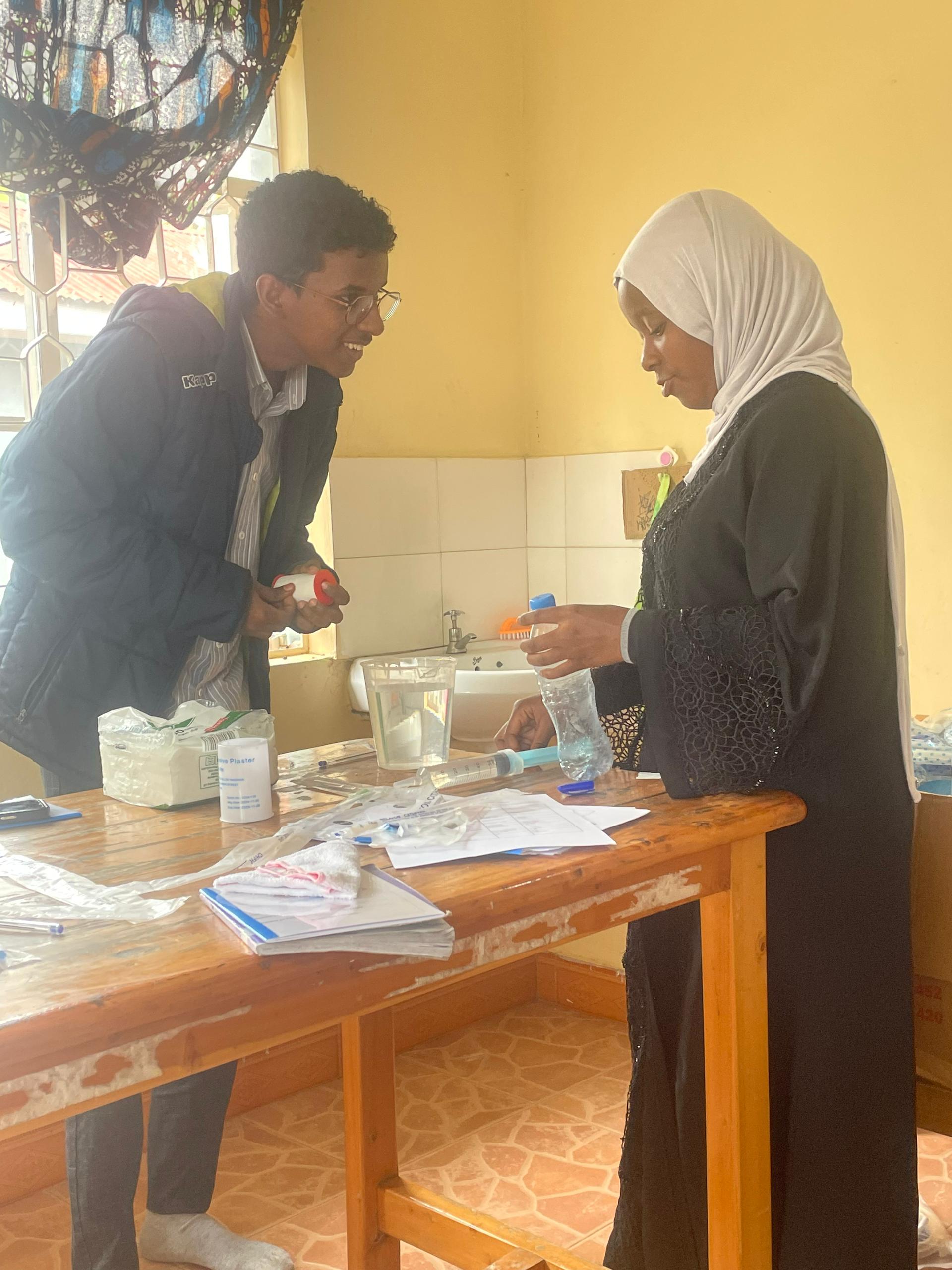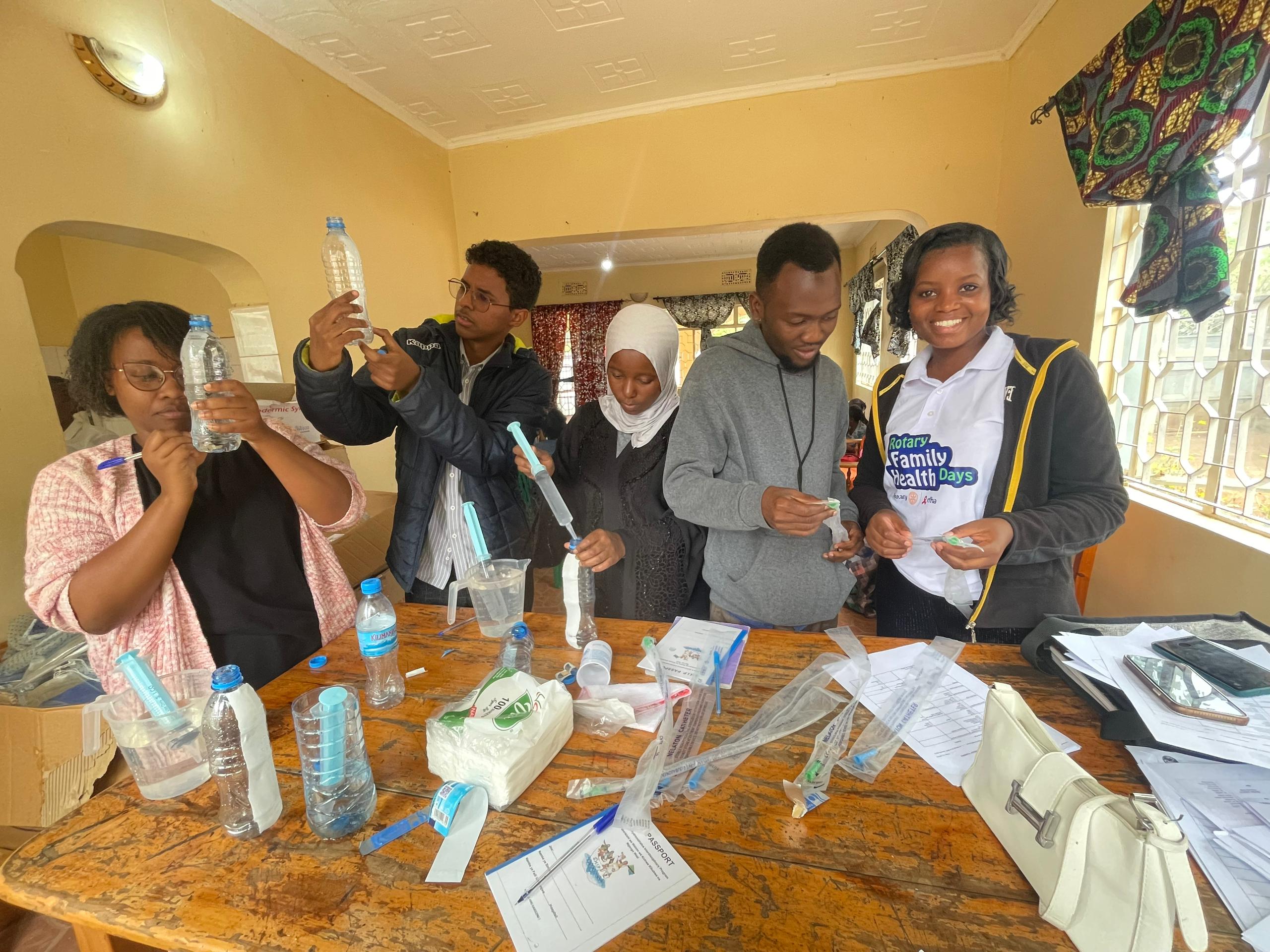
From July 20th to 24th, Child-Help welcomed medical students from Kilimanjaro Christian Medical University College (KCMC) to volunteer at the House of Hope (HoH) Moshi as part of the CIC Week—a dedicated 5 year day training focused on strengthening knowledge, awareness, and support around Clean Intermittent Catheterization (CIC) for children with spina bifida and hydrocephalus (SBH). CIC is a life-saving technique used multiple times a day to manage bladder function and prevent kidney damage in individuals with SBH.
This volunteering initiative reflects our commitment to opening the doors of House of Hope not only to children with spina bifida and hydrocephalus (SBH) and their parents, but also to the future medical professionals who will serve them.
25 KCMC students joined us during this week, offering their time, skills, and compassion to assist at the House of Hope. The response was overwhelmingly positive—each student left with a deeper understanding of SBH and a renewed sense of purpose.
“I had read about spina bifida and hydrocephalus, but this was my first time seeing it up close. It changes everything,” said one student.
“Volunteering here made me realize how important empathy is in medicine. The way mothers care for their children inspired me,” shared another.
“This experience gave additional meaning to my studies. It’s one thing to learn about a condition in class—but meeting the children and families brings it to life.”
The students were guided by Abdul, our House of Hope Manager in Moshi and a second-year medical student at KCMC himself. Speaking with the volunteers, Abdul encouraged them to see this as more than just a one-time experience:
“This is a perfect opportunity to gain real-world experience—not only to see the condition, but to understand the human side of it. You’ll be invited again.”

HoH Moshi is envisioned as a model House of Hope within the broader Child-Help ecosystem. It will serve as a living example of what holistic SBH care can look like. Through volunteering, medical students gain a chance to witness first-hand the reality of SBH care in the community—from health challenges to daily joys and struggles of the children and their parents.

This approach reflects the spirit of SHARE—Spina Bifida and Hydrocephalus Awareness, Advocacy, Access, Resources, and Empowerment—which lies at the core of Child-Help’s Knowledge Centre model. Through SHARE, we believe that sustainable change comes from sharing—not outsourcing—expertise and responsibility. Inviting medical students into the life of the House of Hope is one way we build a generation of healthcare workers who understand SBH not just clinically, but holistically. It’s about equipping them with both knowledge and empathy, and fostering a medical culture that includes every child, every parent, and every story.
We’re already working to expand this volunteer programme to other schools and universities. The more young professionals we reach, the more impact we can make—both now and in the years to come.